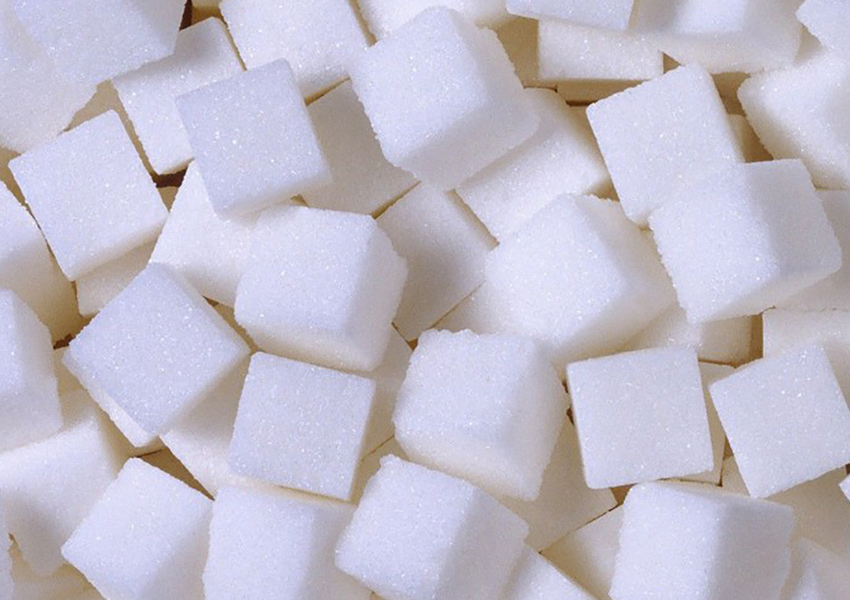Refined sugar was practically nonexistent in the human meal plan until recent times. Today, the over-consumption of sugar is the number one cause of the American obesity epidemic. While the USDA recommends only 8 teaspoons (32 grams) of added sugar per day, the average American eats approximately 53 teaspoons (212 grams). It is loaded into the majority of processed foods, where it lurks in even the most unsuspecting places – breads, sauces, salad dressings, even frozen fruit! With 56 names for refined sugar ingredients (including High Fructose Corn Syrup, Corn Syrup or Corn Syrup Solids, Sucrose and Fructose) manufacturers hide this toxic substance throughout ingredients lists to make our food “taste good.” A bit funny when natural ingredients, like those found in our cold-pressed juices, are full of nutrition and taste so delicious!
Sugar contributes to a whole host of negative health effects – and we’re not just talking about tooth decay here, but sickness, disease, and even cancer. Choosing to avoid refined sugar can prevent these adverse effects, contributing to not only a smaller waistline but a longer, better quality of life.
Top 10 reasons you should avoid refined sugar:
1. Sugar is addictive
Like drugs, sugar stimulates the release of dopamine, a “feel-good” chemical in the brain. As we consume sugar, our bodies create more dopamine receptors that lead us to crave more sugar, resulting in a vicious cycle of sugar consumption.
2. Sugar damages your immune system
By lowering the efficiency of white blood cells for hours at a time after consumption, sugar compromises the immune system and hinders our ability to fight disease and infection.
3. Sugar robs your body of essential minerals
Besides being empty calories with no value in nutrition, sugar actually robs your body of essential minerals. Sugar causes essential minerals like sodium, potassium, magnesium and calcium to be leached from the body. This can weaken the teeth and bones, causing tooth decay and diseases like osteoporosis.
4. Sugar can lead to the development of cancer
There is an old saying: “Cancer loves sugar.” Consuming too much sugar causes our bodies to produce excessive amounts of insulin, which encourages the growth of cells – a good thing for healthy cells, but not cancerous cells. Excessive sugar intake has been linked to increased risk for breast, colon, pancreatic, colorectal, and endometrial cancer.
5. Consumption of sugar is detrimental to the liver
Refined sugar is half glucose and half fructose. The liver is the only organ that can metabolize fructose. When too much fructose enters the liver, it gets turned into fat that can build up over time and ultimately lead to disease.
6. Sugar causes insulin resistance, diabetes, and weight gain
Insulin drives glucose into cells from the bloodstream. Elevated blood glucose is toxic, so when excessive amounts of glucose cannot be used properly the pancreas begins to secrete insulin in order to remove it from the bloodstream, leading the body to become insulin resistant. When the body becomes resistant to insulin, the pancreas stops doing its job properly, which is a contributing factor of type II diabetes. Insulin also signals the body to store fat, which leads to obesity.
7. Sugar causes premature aging
Sugar can attach to proteins in the bloodstream, resulting in AGEs (Advanced Glycation End Products) that damage collagen and elastin production, which are responsible for maintaining skin’s elasticity.
8. Sugar leads to depression, anxiety, chronic fatigue, irritability, and mood swings
Consuming sugar leads to a spike in both blood sugar and feel-good serotonin levels in the brain. When the sugar withdraws from our system, we experience a “crash” creating a cycle of craving and bingeing in both our bodies and our minds. This is not fun for anyone.
9. Sugar increases hyperactivity in children
Refined sugars enter the bloodstream quickly, producing rapid fluctuations in blood glucose levels that trigger adrenaline and make children more active. Consider more kid friendly snacks to help avoid this.
10. Sugar can affect your cholesterol
High sugar consumption lowers levels of the “good” HDL cholesterol that helps remove LDL, or “bad” cholesterol from the artery walls, and has been shown to increase levels of triglycerides, a type of fat found in the blood that poses an increased risk for heart disease.
Artificial sweeteners, while not made from sugar, should also be avoided at all costs. These sweeteners are made from loads of chemicals, have absolutely no nutrition, and carry a slew of harmful side effects of their own.
It should be noted that natural sugar found in fruit does not have any of the negative effects of refined sugar. If you would like to add a bit of sweet to your food, we recommend Stevia, a natural plant extract that has no calories, is sweeter than sugar, and has no adverse effects on blood sugar levels. We have actually chosen to add a dash of this natural sweetener to some of the juices in our juice cleanses for this reason!
Choosing to avoid refined sugar and sticking to a low glycemic cleanse or meal plan may be hard at first, but within a matter of time you’ll begin to experience the positive effects it will have on your mind, body, and overall well-being.


